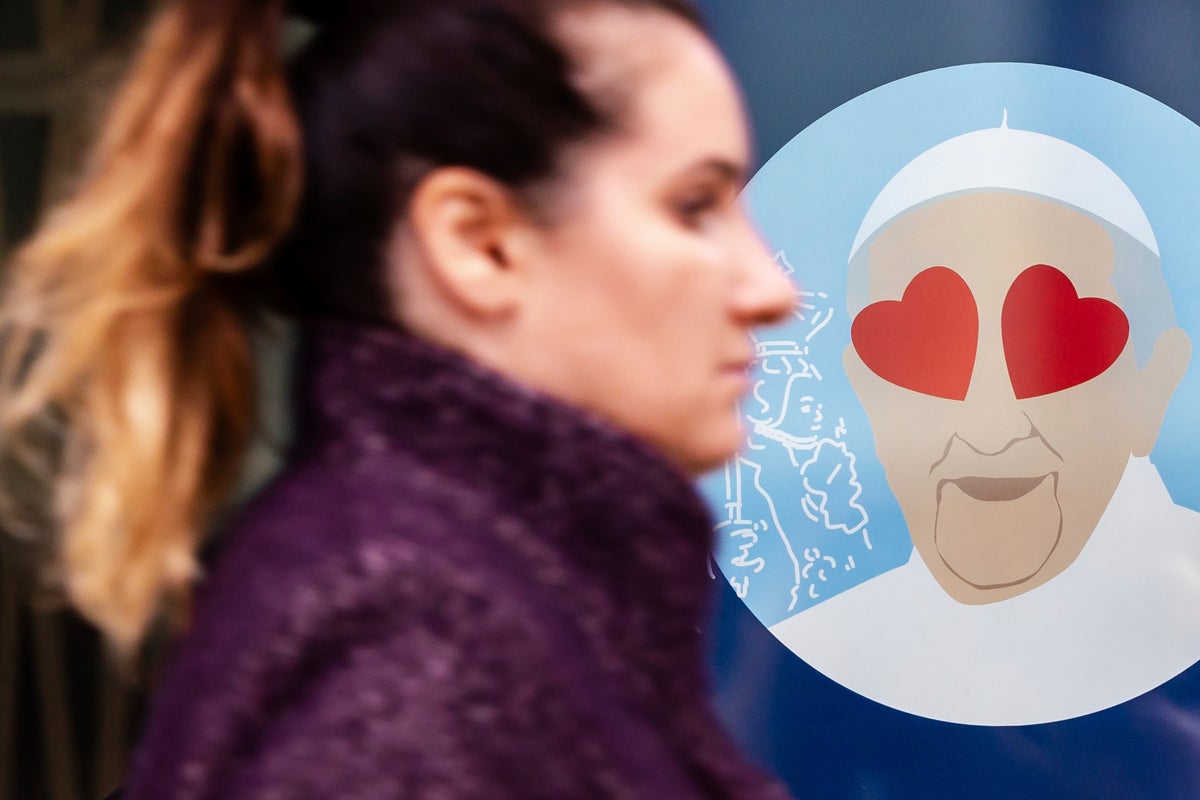
Your support helps us to tell the story
Pope Francis is traveling to once-strong bastions of Christianity in the heart of Europe to try to reinvigorate a Catholic flock that is dwindling in the face of secular trends and abuse scandals that have largely emptied the continent’s magnificent cathedrals and village churches.
Francis stops first Thursday in Luxembourg, the European Union’s second-smallest country, with a population of some 650,000 people, and its richest per capita. Torrential downpours are expected, days after the 87-year-old pope canceled his audiences because of a slight flu.
He seemed in fine form at the Vatican on Wednesday, during his general audience on the eve of the trip, but his respiratory health is a constant concern and his medical team will be on hand.
After meeting with Luxembourg’s political leaders, Francis will speak to the country’s Catholic priests and nuns. The venue is the late-Gothic Cathedral of Notre Dame, which was built in the early 1600s by Francis’ own Jesuit order and stands as a monument to Christianity’s long and central place in European history.
Francis is likely to dwell on Europe’s role past, present and future — particularly as war rages on European soil — during his visits to Luxembourg and Belgium, where he arrives later Thursday and stays through the weekend.
The trip is a much-truncated version of the 10-day, 1985 tour St. John Paul II made through Luxembourg, Belgium and the Netherlands, during which the Polish pope delivered 59 speeches or homilies and was greeted by hundreds of thousands of adoring faithful.
In Luxembourg alone, John Paul drew a crowd of some 45,000 people to his Mass, or some 10% of the then-population, and officials had predicted a million people would welcome him in Belgium, according to news reports at the time.
But then as now, the head of the Catholic Church faced indifference and even hostility to core Vatican teachings on contraception and sexual morals, opposition that has only increased in the ensuing generation. Those secular trends and the crisis over clergy abuse have helped lead to the decline of the church in the region, with monthly Mass attendance in the single digits and plummeting ordinations of new priests.
Vatican spokesman Matteo Bruni said that by traveling to the two countries, Francis will likely want to offer “a word to the heart of Europe, of its history, the role it wants to play in the world in the future.”
Immigration, climate change and peace are likely to be themes during the four-day visit, which was organized primarily to mark the 600th anniversary of the founding of Belgium’s two main Catholic universities.
In Luxembourg, Francis has a top ally and friend in the lone cardinal from the country, Jean-Claude Hollerich, a Jesuit like the Argentine pope.
Hollerich, whom Francis made a cardinal in 2019, has taken on a leading role in the pope’s multi-year church reform effort as the “general rapporteur” of his big synod, or meeting, on the future of the Catholic Church.
In that capacity, Hollerich has helped oversee local, national and continental-wide consultations of rank-and-file Catholics and synthesized their views into working papers for bishops and other delegates to discuss at their Vatican meetings, the second session of which opens next week.
Last year, in another sign of his esteem for the progressive cardinal, Francis appointed Hollerich to serve on his kitchen cabinet, known as the Council of Cardinals. The group of nine prelates from around the globe meet several times a year at the Vatican to help Francis govern.
__
Casert reported from Brussels. AP researcher Rhonda Shafner contributed from New York.







